
University Network for Climate and Ecosystem Change Adaptation Research (UNCECAR)
About UN-CECAR
The University Network for Climate and Ecosystems Change Adaptation Research (UN-CECAR) was an international initiative that was established at the United Nations University. Tokyo, Japan in 2006.
Bringing together leading universities, researchers, and policymakers, UN-CECAR advanced climate adaptation strategies through education, research, and capacity-building.
Although the program has concluded, its contributions continue to shape climate resilience and sustainability education across the Asia-Pacific region.

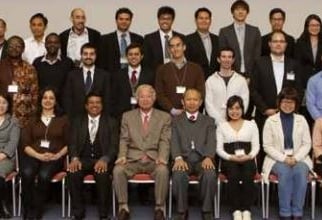
UN-CECAR Training Course:
Climate Change Downscaling Approaches
The UN-CECAR Training Course on Climate Change Downscaling Approaches and Applications (CCDAA) equipped participants with both theoretical knowledge and practical skills in climate downscaling.
✅ Why Downscaling?
Global climate models provide broad trends but lack regional accuracy. Downscaling helps translate these global models into precise, localized climate impact assessments.
✅ What Participants Learned:
🔹 Statistical & dynamical downscaling methods
🔹 Hands-on training with climate datasets & software tools
🔹 Geographic Information Systems (GIS) for climate impact assessments
🔹 Applications in agriculture (rice production) & flood management
This course empowered researchers and professionals to develop effective adaptation strategies tailored to their local and regional contexts.
Mission & Achievements
UN-CECAR aimed to:
✔ Build capacity in climate change adaptation by integrating science, policy, and practice.
✔ Facilitate knowledge-sharing and interdisciplinary research.
✔ Develop strategies for climate resilience and sustainable development.
Since its inception in 2006, UN-CECAR:
🔹 Engaged 20+ universities and institutions in collaborative research.
🔹 Trained hundreds of professionals and researchers in climate adaptation.
🔹 Developed postgraduate courses and specialised training programs.
📖 UN-CECAR Postgraduate Courses
These specialized courses equipped students with scientific knowledge and practical skills to tackle climate challenges.
1️⃣ Building Resilience to Climate Change (BRCC) 🌍
🔹 Covered climate science, impact assessment, and ecosystem resilience.
🔹 Provided training in GIS & remote sensing for climate research.
2️⃣ Renewable Energy (RE) 🌞
🔹 Explored solar, wind, hydro, bioenergy, and hydrogen technologies.
🔹 Addressed energy security, policy frameworks, and sustainability challenges.
3️⃣ Leadership for Sustainability 🏆
🔹 Trained future sustainability leaders in decision-making and business strategy.
🔹 Covered Sustainable Development Goals (SDGs), negotiation skills, and organizational leadership.
Key Activities
📅 Annual Conferences
Brought together global experts, and researchers to discuss the latest advancements in climate adaptation and sustainability.
🛠️ Workshops & Training Programs
Provided hands-on training in climate modeling, disaster risk management, renewable energy, and ecosystem resilience.
Conducted capacity-building programs for professionals and researchers.
📚 Postgraduate Education & Course Development
Designed specialized courses in climate science, renewable energy, and disaster risk reduction.
Delivered training in collaboration with leading universities across Asia.
🤝 International Collaboration
Partnered with over 20 leading universities in the Asia-Pacific region.
Strengthened global networks in sustainability education and research.
🌎 INATE
International Network for Transdisciplinary Education
INATE is a pioneering initiative that builds upon the expertise and experience of UN-CECAR, integrating education, research, and capacity-building for a holistic approach to global challenges.
INATE’s Framework for Transdisciplinary Project Implementation
✔ Research & demonstration projects for real-world problem-solving.
✔ Addressing societal needs, conflict resolution, and stakeholder engagement.
✔ Scaling up from research to real-world development projects.
INATE continues to bridge disciplines, foster collaboration, and advance solutions for climate resilience and sustainability.
📌 Impact of UN-CECAR
Since its start in 2006, UN-CECAR’s resources, research, and training materials have continued to inform academic institutions, policymakers, and professionals working in climate resilience and sustainability.
The knowledge and collaborations fostered by UN-CECAR remain valuable assets for addressing global climate challenges today.


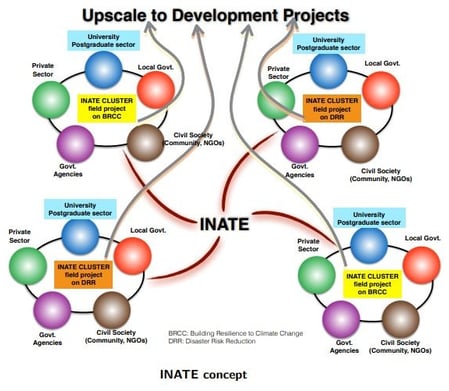

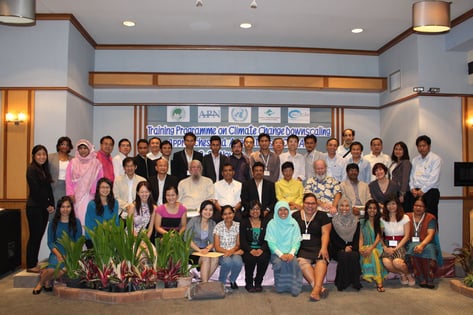

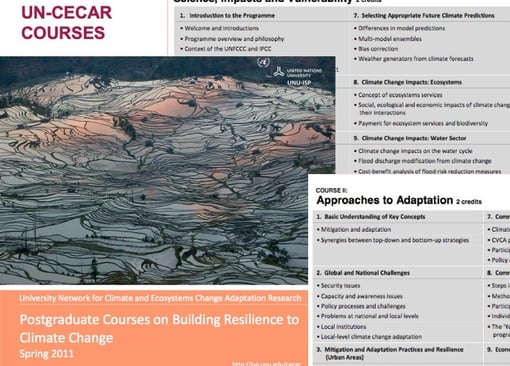

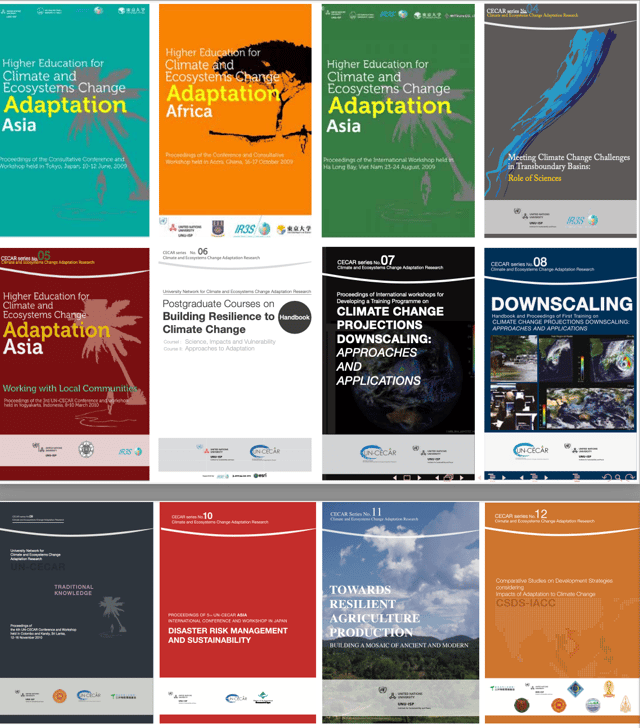

UNCECAR Annual conferenes are followed by a workshop to adopt an annual workplan developing and delivering postgraudate courese and training programs
UNCECAR Products
📅 Needs Assessment
China
Nepal
Malaysia
Sri Lanka.
🛠️ Collaborative Researc
Building resilience to Clim
Slow Onset Events - Land degradation and bio diversity conservation.
📚 Courses
Post graduate courses collectively designed and developed delivered by partner university professors.
🤝 Training
Designed and developed by University network with International Development agencies and national ressearch institutions.
Get In Touch
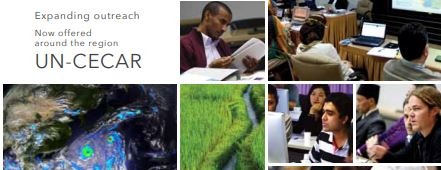

Connect with us to collaborate on climate change adaptation and sustainability research initiatives in the Asia-Pacific.
Collaboration
Uniting for climate research and education initiatives.
Sustainability
Innovation
admin@enviforecasting.com
© 2025. All rights reserved.
